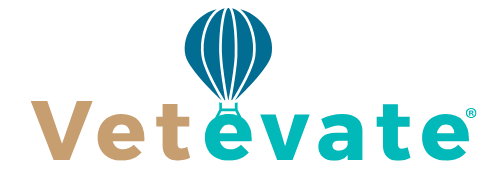Veterinary job boards are more than just places to browse employment listings—they are dynamic tools that help job seekers make informed decisions about their careers. By focusing exclusively on opportunities within the veterinary and animal care sectors, these specialized platforms provide information that is not only relevant but also rich in context. When people visit a veterinary job board, they gain immediate access to a curated environment filled with details that directly support their decision-making process. These details range from job descriptions and employer expectations to compensation insights and role-specific requirements.
For those considering a new role or a career shift within the veterinary industry, the information provided on these boards is crucial. Job seekers can evaluate which types of positions are in high demand and which skills are most commonly required by employers. They can see firsthand how experience levels, certifications, and specializations affect job availability and compensation. This kind of transparency enables people to align their personal goals with realistic opportunities in the field. Rather than guessing what employers want or what roles may suit them best, individuals can use real-world data from job boards to map out their next move with greater clarity and confidence.
Offering Insight into Industry Trends and Employer Expectations
Veterinary job boards serve as a reflection of what is happening in the industry at any given time. They reveal patterns in hiring, highlight regional demand, and indicate the evolving priorities of employers. Someone browsing a job board over a period of weeks or months may notice an increase in listings for emergency veterinarians, telehealth positions, or roles in animal rehabilitation. These trends offer valuable insights not only about where the jobs are but also about where the industry is heading. Such knowledge is instrumental for job seekers making long-term career decisions, particularly if they are considering further education, relocation, or specialization.
In addition to trend awareness, veterinary job boards give users direct access to employer expectations. Each listing typically includes specific requirements such as education levels, certifications, years of experience, and preferred skills. This allows job seekers to understand what qualifications are truly necessary and where there may be room for flexibility. Moreover, job descriptions often detail the type of work environment, expected duties, and sometimes even information about clinic culture and values. These insights can help users determine whether a particular position—or even a type of employer—is right for them. Being able to assess job listings in this way helps job seekers make better, more strategic decisions that take their personal preferences and professional goals into account.
Some veterinary job boards go a step further by including employer profiles or ratings, which add another layer of decision-supporting information. By reading about other professionals’ experiences or reviewing feedback on workplace culture, benefits, and management styles, job seekers gain an advantage in assessing potential employers before applying. This helps people avoid mismatches and increases the likelihood of finding a workplace where they can thrive. Understanding the values and reputation of a prospective employer is a crucial part of making informed career decisions, and veterinary job boards often provide the platform to gather that knowledge.
Supporting Career Planning and Development
Veterinary job boards are not only tools for immediate job placement; they are also important resources for long-term career planning. Many individuals visit these boards even when they are not actively searching for a new job. They use the listings and accompanying resources to better understand their position in the industry, identify gaps in their qualifications, and plan the next steps in their career journey. For someone who is just starting out in animal care or veterinary services, the job board can provide a roadmap of how careers typically progress, what opportunities exist at each stage, and what credentials are necessary to move forward.
Some boards include detailed information about continuing education, certification programs, and even mentorship opportunities. These resources help users make informed choices about whether to pursue additional schooling, attend a professional conference, or acquire a new skill. Knowing what qualifications are most commonly required for more advanced roles gives users a sense of direction and a measurable path toward advancement. In a field that demands both compassion and technical expertise, the ability to strategically build one’s qualifications over time is invaluable.
Additionally, the frequency and availability of certain job types on veterinary job boards can help users assess the stability and growth potential of different career paths. For instance, someone interested in exotic animal care might notice that such roles are less frequently listed compared to small animal general practice positions. This doesn’t necessarily discourage interest, but it does provide a more realistic picture of the opportunities available. Armed with this kind of information, users can weigh their passions against practical considerations and make more grounded decisions about their careers.
Empowering Individuals with Transparency and Confidence
In an increasingly competitive job market, information is power—and veterinary job boards provide users with exactly that. The clarity and transparency these boards offer empower people to take ownership of their career decisions. Instead of relying on word-of-mouth, guesswork, or scattered sources of information, job seekers can turn to a central, trusted resource that reflects the current state of the veterinary field. From understanding salary expectations to discovering emerging areas of specialization, users are equipped with the facts they need to move forward confidently.
Transparency in salary ranges, benefits, work schedules, and responsibilities also plays a critical role. When job seekers can compare multiple listings with similar roles, they begin to understand what constitutes fair compensation and reasonable workloads. This empowers them not only to choose wisely but also to negotiate effectively. Rather than accepting a role out of desperation or lack of information, individuals can make educated choices that serve their long-term interests and well-being. Veterinary job boards foster this kind of empowerment by making information easily accessible and consistently updated.
Beyond the listings themselves, many veterinary job boards provide access to career support content. Articles, webinars, and expert Q&As may cover topics such as how to transition between roles, how to recover from burnout, or how to start a mobile veterinary business. These materials help users understand the broader landscape of career possibilities and offer guidance on how to navigate challenges. For job seekers feeling uncertain or overwhelmed, this kind of support can be the difference between a reactive and a proactive job search.
Ultimately, veterinary job boards succeed because they recognize the unique challenges and aspirations of those who work in animal care. They don’t just connect people to jobs—they connect people to knowledge, resources, and opportunities that shape meaningful careers. In doing so, they provide the clarity and confidence needed to make sound, well-informed decisions about where to work, how to grow, and what kind of veterinary professional one wants to become.
The Final Word
Veterinary job boards are powerful tools that do much more than list open positions. They provide crucial information that helps people make informed decisions about their jobs and long-term careers in animal care. From revealing industry trends and employer expectations to offering resources for growth and planning, these platforms serve as trusted guides for anyone navigating the veterinary job market. For individuals seeking clarity, direction, and empowerment in their professional lives, veterinary job boards are an essential part of the journey.




